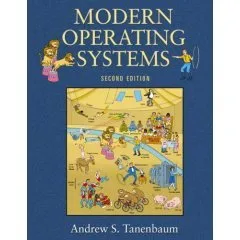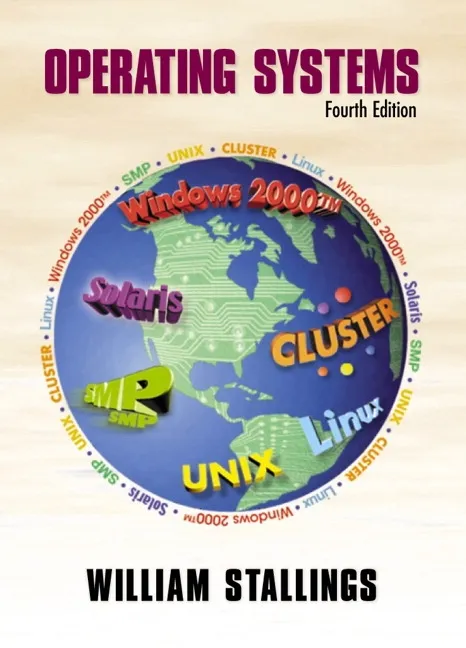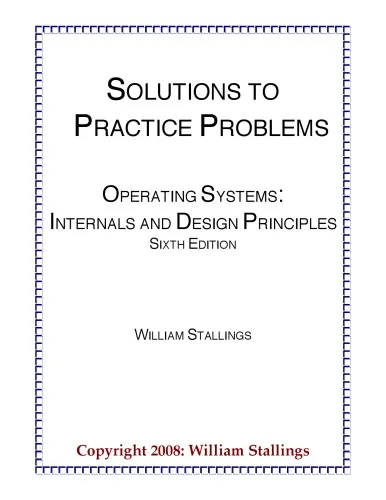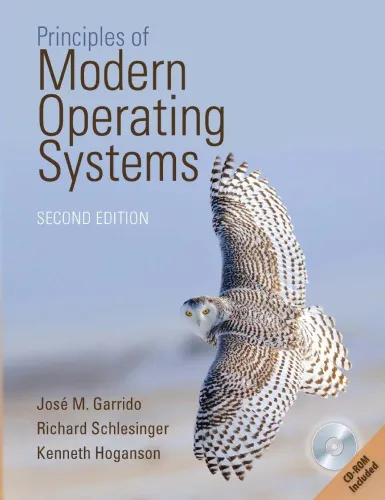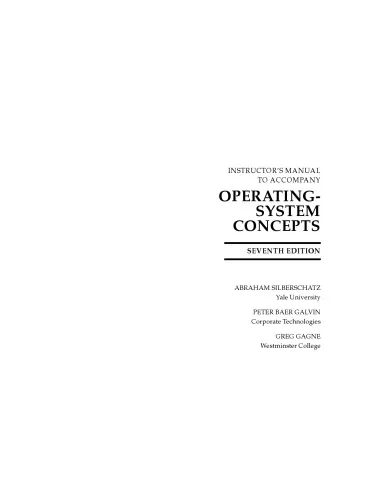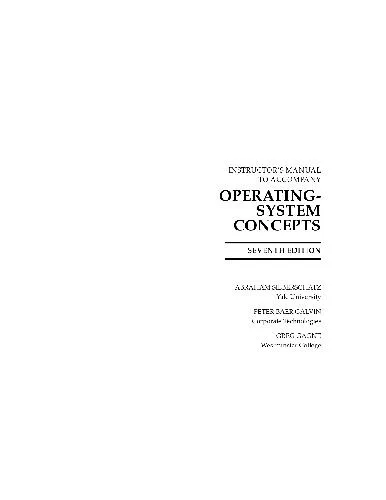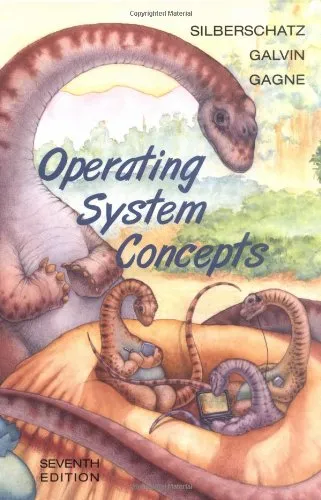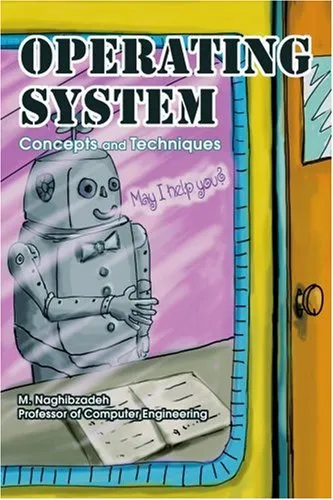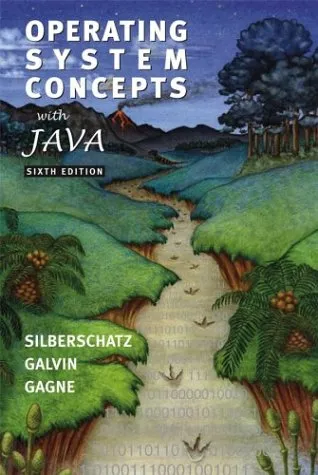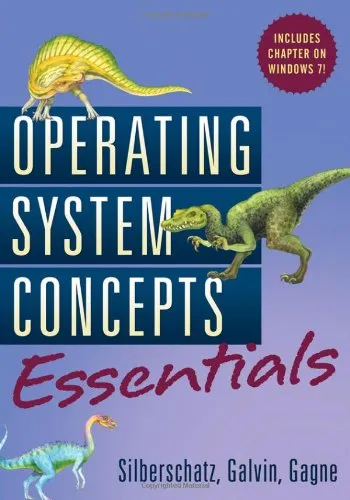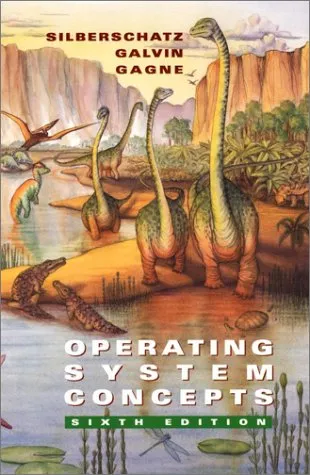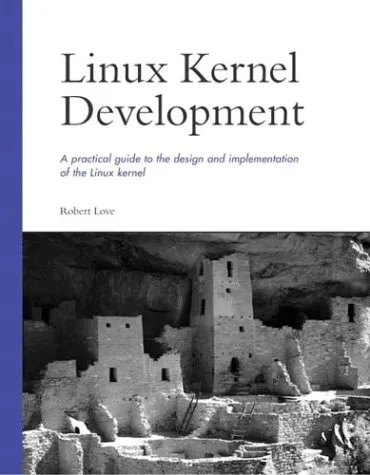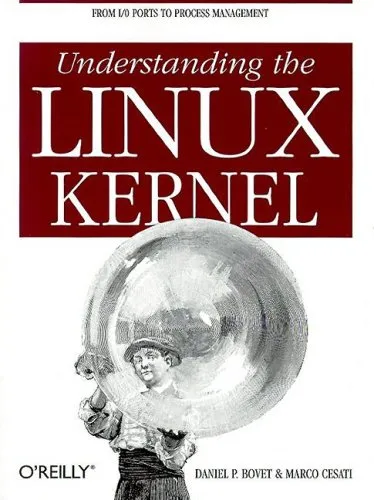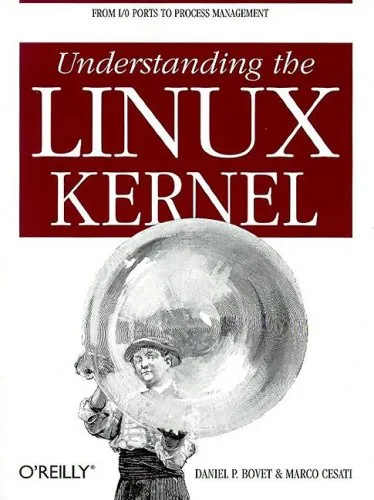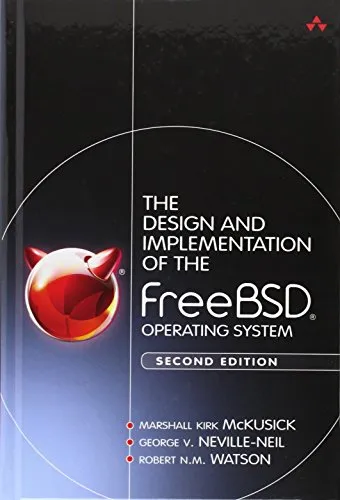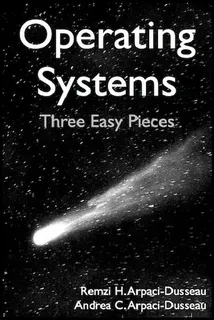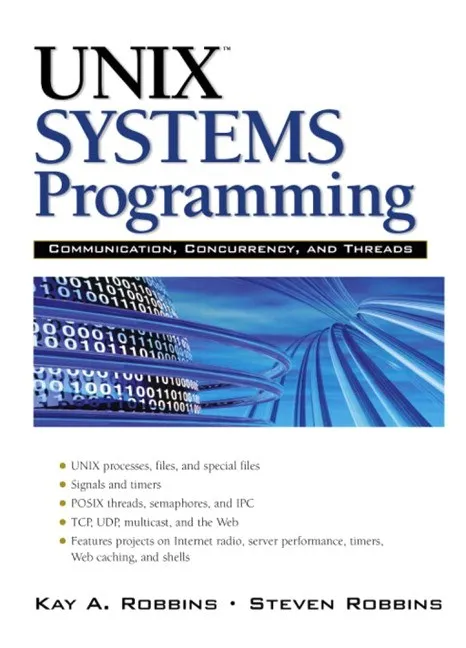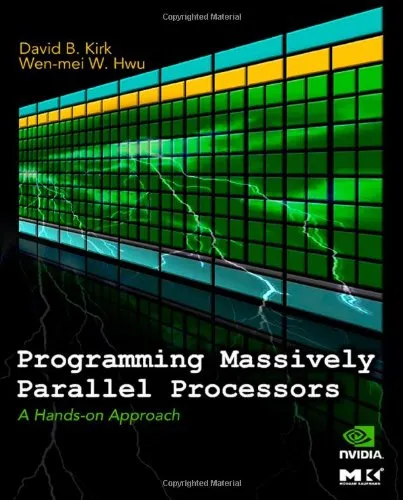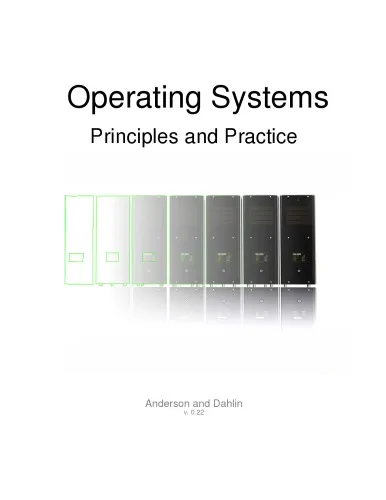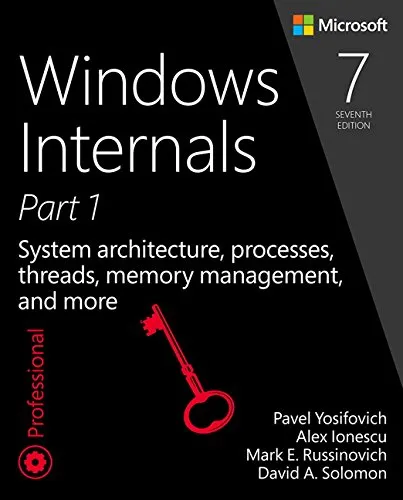Modern operating systems
4.1
بر اساس نظر کاربران

شما میتونید سوالاتتون در باره کتاب رو از هوش مصنوعیش بعد از ورود بپرسید
هر دانلود یا پرسش از هوش مصنوعی 2 امتیاز لازم دارد، برای بدست آوردن امتیاز رایگان، به صفحه ی راهنمای امتیازات سر بزنید و یک سری کار ارزشمند انجام بدینکتاب های مرتبط:
Persian Summary
مقدمهای جامع بر کتاب "سیستم عاملهای مدرن"
کتاب "سیستم عاملهای مدرن" نوشتهٔ اندرو اس. تاننباوم، یکی از منابع مهم و پایهای در زمینه مطالعه سیستم عاملها به شمار میآید. این کتاب که به عنوان یکی از متون اصلی برای دانشجویان و متخصصان علوم کامپیوتر محسوب میشود، به صورت جامع به مفاهیم و طراحی سیستم عاملها میپردازد.
خلاصهای جامع از کتاب
کتاب "سیستم عاملهای مدرن" در نسخههای متعدد خود به روزرسانی شده و پیشرفتهای جدید و تکنولوژیهای نوظهور در زمینه سیستم عامل را در بر میگیرد. این کتاب در چندین فصل طراحی شده که هر کدام مفاهیم خاصی از سیستم عامل مانند Process Management، Memory Management، File Systems و I/O Systems را به تفصیل توضیح میدهد.
اندرو تاننباوم در این کتاب با زبانی شیوا و جذاب به بررسی سیستمهای مختلف از جمله Windows، Unix و Linux پرداخته و تفاوتهای کلیدی و مشترکات آنان را بررسی میکند. این کتاب با ارائه مثالهای واقعی و استفاده از دیاگرامها و تصاویر به فهم بهتر مطالب کمک شایانی مینماید.
نکات کلیدی
- مدیریت فرآیندها و Threadها
- مدیریت حافظه و بهینهسازیهای مرتبط
- بررسی سیستم فایلها و امنیت دادهها
- مدیریت ورودی و خروجی و توسعه Driverها
- امنیت سیستم و مسائل مرتبط با آن
نقلقولهای معروف از کتاب
"یکی از مهمترین کارکردهای سیستم عامل مدیریت منابع است تا عملکرد مطلوبی بین رقابتهای کاربران و Applicationها تضمین شود."
"سیستم عامل به مانند یک مدیر پشت صحنه است که تمام عناصر هارمونی سیستم را به صورت هماهنگ پیش میبرد."
چرا این کتاب مهم است؟
این کتاب از آن جهت حائز اهمیت است که میتواند به عنوان یک پلی برای ورود به حوزه تخصصی سیستم عاملها مورد استفاده قرار گیرد. در دورهای که تکنولوژی به سرعت در حال تغییر و تحول است، درک اصول و مفاهیم پایه سیستمهای عامل به متخصصان جدید کمک میکند تا بتوانند خود را با روندهای جدید منطبق سازند.
این کتاب نه تنها برای دانشجویان بلکه برای متخصصان و توسعهدهندگان نرمافزار نیز به عنوان یک منبع مرجع ضروری است. با توجه به مثالهای عملی و واقعی که در کتاب آورده شدهاند، خواننده به خوبی میتواند تئوری مطرح شده را در عمل مشاهده نماید.
Introduction to 'Modern Operating Systems'
Welcome to the comprehensive world of operating systems, as detailed in 'Modern Operating Systems' by Andrew S. Tanenbaum. This book serves as a cornerstone for understanding the intricate functionalities, architectures, and theories that govern modern operating systems. Whether you're a student embarking on a journey in computer science, a seasoned professional, or an enthusiastic learner, this book offers essential insights and practical knowledge.
Detailed Summary
In 'Modern Operating Systems', we delve deeply into the fundamental principles of operating systems, offering a thorough examination of what makes them tick. The book covers various operating system concepts such as process management, memory management, file systems, I/O systems, and security. Each chapter is crafted to balance theory with real-world applications, offering crucial insights into how real operating systems like UNIX, Linux, and Windows operate.
One of the book's primary goals is to demystify the distinctions between different types of operating systems. By exploring concepts like multiprocessing and parallelized operations, it becomes evident how these systems efficiently manage resources and processes. The book also provides historical context, aiding readers in understanding how past innovations have shaped contemporary practices.
Key Takeaways
- Conceptual Clarity: Grasp fundamental concepts such as kernels, threads, inter-process communication, and concurrency.
- Real-World Examples: Learn from detailed case studies of popular operating systems, reinforcing theoretical knowledge with practical insights.
- Security and Protection: Discover how modern operating systems protect data and manage security threats.
- System Performance Optimization: Understand the techniques involved in optimizing system performance and resource management.
- Emerging Trends: Stay ahead by exploring trends like mobile operating systems, cloud computing, and the role of OS in distributed systems.
Famous Quotes from the Book
"An operating system is a program that acts as an intermediary between a user of a computer and the computer hardware."
"The fundamental job of an operating system is to allocate resources to processes (such as the CPU time and memory) in an efficient and fair manner."
Why This Book Matters
'Modern Operating Systems' is more than just a textbook; it is a vital resource for anyone seeking a profound understanding of how operating systems function and their role in the world of computing. Its practical approach to explaining complex topics makes it an invaluable tool for educators and learners alike.
The importance of operating systems in today’s digital landscape cannot be overstated. They are the backbone of all computing systems, from the smallest embedded devices to the most robust mainframes. 'Modern Operating Systems' breaks down these complex systems, making them accessible and understandable. By understanding operating systems, readers gain insight into the very fabric of computing technology, empowering them to innovate and develop new technologies.
Moreover, this book is recognized for preparing its readers not only to grasp current technologies but also to analyze and predict future trends in operating systems. Whether you aim to design your own system or simply want a deeper understanding of the operating platforms, this book provides the knowledge and foresight required to succeed in the ever-evolving tech industry.
دانلود رایگان مستقیم
شما میتونید سوالاتتون در باره کتاب رو از هوش مصنوعیش بعد از ورود بپرسید
دسترسی به کتابها از طریق پلتفرمهای قانونی و کتابخانههای عمومی نه تنها از حقوق نویسندگان و ناشران حمایت میکند، بلکه به پایداری فرهنگ کتابخوانی نیز کمک میرساند. پیش از دانلود، لحظهای به بررسی این گزینهها فکر کنید.
این کتاب رو در پلتفرم های دیگه ببینید
WorldCat به شما کمک میکنه تا کتاب ها رو در کتابخانه های سراسر دنیا پیدا کنید
امتیازها، نظرات تخصصی و صحبت ها درباره کتاب را در Goodreads ببینید
کتابهای کمیاب یا دست دوم را در AbeBooks پیدا کنید و بخرید
1725
بازدید4.1
امتیاز0
نظر98%
رضایتنظرات:
4.1
بر اساس 0 نظر کاربران
Questions & Answers
Ask questions about this book or help others by answering
No questions yet. Be the first to ask!
